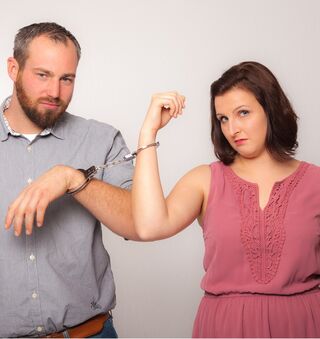
Source: Pixabay/Derks24
Think of your last romantic relationship. How good was it? Do you think your recollection is accurate, or might you have a retrospective bias—remembering your relationship and compatibility with your ex-partner as having been worse than they really were?
In an article published in the May issue of the Journal of Social and Personal Relationships, Smyth and colleagues discuss how we may deceive ourselves when we judge the quality of our relationships retrospectively.1
First, I will discuss the methods and results of the study. If you are most interested in the conclusion, skip to the next section, the summary of important findings.
The study used two surveys. The data for the first survey (i.e. Time 1) were collected from online and undergraduate student samples. These participants had been in a relationship for an average of 8 months. Of the 540 individuals in the sample, 184 also completed the survey at Time 2, and they had an average age of 27 years; 38% were male, 95% were heterosexual, and 66% were White. They did not significantly differ from those who chose not to participate in the second survey.
Time 1’s measures included a 6-item scale evaluating perceived relationship quality—commitment, trust, passion, intimacy, love, and satisfaction. A sample item was, “I am satisfied with my relationship with my current romantic partner.” It also included a 7-item scale, which measured perceptions of partner compatibility (e.g., values, interests, goals, traits, sexual and communication styles). A sample item was, “[partner’s name] and I fit well together in terms of our personality.”
Four months later, at Time 2, the returning participants indicated whether they were still together (a quarter of them had broken up) and again completed the two measures described above. Furthermore, they provided a retrospective assessment of their relationships, reporting on their recollection of how they had felt about their relationship and compatibility four months earlier.
Note, those who had experienced a breakup were not different from those still together in terms of perceptions of compatibility with their partner, though they reported less satisfaction.
To evaluate bias in compatibility perceptions and relationship evaluations, the researchers conducted two analyses. The results showed that participants at Time 2 rated their relationships at Time 1 more negatively and considered their partners less compatible than they had originally reported at Time 1. This bias was nearly three times larger for individuals who were no longer in a relationship than for couples who were still together.
Summary of important findings
The study yielded two important findings. First, after a breakup, compared to when still together, individuals judged their previous relationships as having been more negative and remembered their former romantic partners as less compatible. Second, couples who were still together reported being more satisfied with their relationships than they had been before, even though their actual ratings of relationship quality at Time 2 and Time 1 were similar.
So, how do we explain the tendency of romantic partners to deceive themselves and to remember their relationships from a few months ago as having been worse than was really the case?

Source: Pixabay/Free Photos
One possibility is that these forms of self-deception are psychological strategies meant to make people feel better about their relationships. We want to think our relationships are improving over time and that we are becoming more compatible.
And in the case of those who had broken up, perhaps self-deception protected their mental health and helped them adjust to the breakup. After all, it is likely more difficult to cope with a breakup if one remembers the relationship as very fulfilling rather than stressful and unpleasant.
Another possibility is that people’s recollections are accurate but the original ratings were inaccurate. Why would the original ratings be wrong? Perhaps when we fall in love, we overvalue our relationship and compatibility. So our judgments of relationship quality and compatibility could be biased at the time they are made.
As the authors note, “the means for relationship quality in the present research all fall above the midrange of the scale, suggesting that participants did not completely derogate their relationships retrospectively; rather, their extreme positive view was tempered.”1
In short, people’s present and retrospective judgments of their relationships and compatibility could both be biased—overly positive originally and overly negative in retrospect. Whether judgments of a relationship are more accurate when we are in the middle of it or when it has ended, and whether such biases are adaptive (help us function better) are questions future research needs to address.
"really" - Google News
July 23, 2020 at 06:37AM
https://ift.tt/32Gf8uu
Was Your Relationship With Your Ex Really as Bad as That? - Psychology Today
"really" - Google News
https://ift.tt/3b3YJ3H
https://ift.tt/35qAk7d
Bagikan Berita Ini














0 Response to "Was Your Relationship With Your Ex Really as Bad as That? - Psychology Today"
Post a Comment